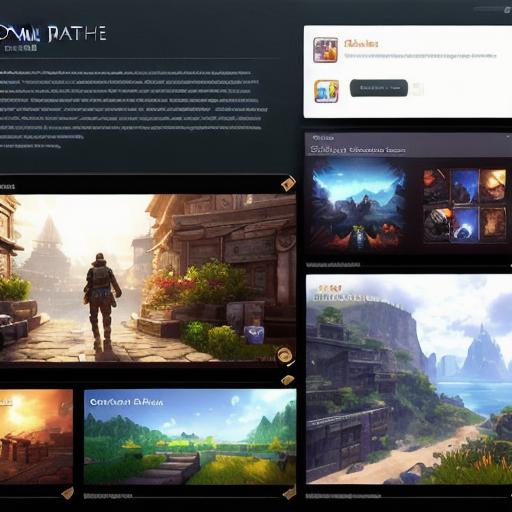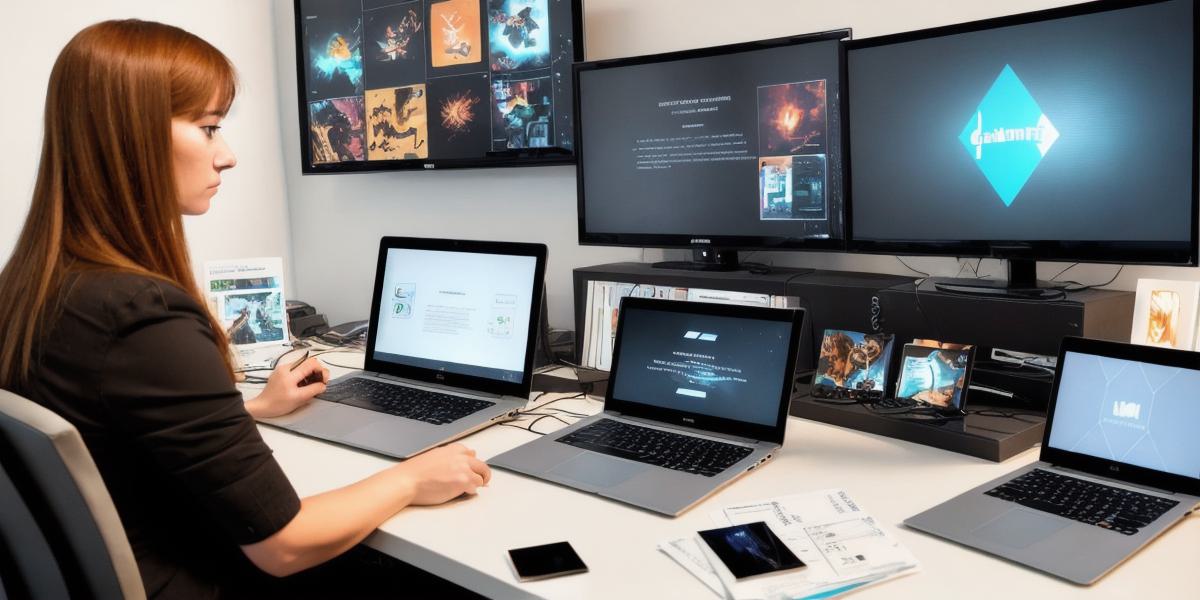Introduction
When it comes to creating a game development portfolio, one of the most important things you need is inspiration. A great portfolio can help you stand out from the competition and showcase your skills to potential employers or clients. However, finding examples of high-quality game dev portfolios can be challenging, especially if you’re new to the field.
In this article, we will provide you with a comprehensive guide on where to find game dev portfolio examples for inspiration and guidance. We will discuss the importance of having a well-designed portfolio, highlight some of the best resources to find game dev portfolios online, and provide you with some tips on how to create your own portfolio.
The Importance of a Well-Designed Portfolio
Before we dive into where to find game dev portfolio examples, it’s important to understand why having a well-designed portfolio is essential for game development professionals. A good portfolio showcases your skills and experience, demonstrates your creativity and innovation, and helps you stand out from other candidates in the job market.
Here are some tips on how to create a great portfolio:
- Keep it simple and clean: Your portfolio should be easy to navigate and visually appealing. Use clear headings and subheadings to organize your work, and choose a color scheme that complements your content.
- Highlight your best work: When creating your portfolio, focus on showcasing the projects you are most proud of. This will help potential employers or clients get a better understanding of your skills and experience.
- Provide context: It’s important to provide context for each project in your portfolio. Explain what challenges you faced during the development process, how you overcame them, and what you learned from the experience.
- Include real-life examples: Whenever possible, include real-life examples of your work in your portfolio. This will give potential employers or clients a better understanding of your skills and experience in action.
Now that we’ve discussed the importance of having a great portfolio let’s move on to where to find game dev portfolio examples for inspiration and guidance.
Where to Find Game Dev Portfolio Examples Online

There are many resources available online for finding game dev portfolio examples. Here are some of the best:
- Behance: Behance is a popular platform for artists, designers, and game developers to showcase their work. You can search for game development portfolios by keyword or browse through categories such as 2D art, 3D modeling, animation, and more.
- DeviantArt: DeviantArt is another great resource for finding game dev portfolio examples. It’s a community-driven platform that allows artists to share their work and receive feedback from other members of the community.
- ArtStation: ArtStation is a digital art marketplace that features portfolios from artists, designers, and game developers. You can search for game development portfolios by keyword or browse through categories such as concept art, illustration, and more.
- Itch.io: Itch.io is a platform for independent game developers to share and sell their games. You can browse through games by genre or search for specific titles. Many of the games on itch.io have high-quality portfolios that showcase the development process.
- LinkedIn: LinkedIn is a professional networking site that allows users to create profiles and showcase their work. You can search for game development portfolios by keyword or browse through categories such as software development, design, and more.
Tips on How to Use Game Dev Portfolio Examples for Inspiration and Guidance
Now that we’ve discussed some of the best resources for finding game dev portfolio examples let’s move on to how you can use them for inspiration and guidance.
- Study the design process: Look at how other game developers have approached their projects, and try to understand the design process they used. Take note of any innovative techniques or approaches they used that you could apply to your own work.
- Learn from their mistakes: Every project has its challenges, and it’s important to learn from the mistakes others have made. Look at how other game developers have overcome obstacles and taken risks in their projects, and try to apply those lessons to your own work.
- Get feedback: One of the best ways to improve your portfolio is to get feedback from others. Reach out to other game developers or artists and ask for their feedback on your work. They may offer valuable insights into areas you can improve upon.
- Experiment with different styles: Looking at different game dev portfolios can help you expand your creative horizons and experiment with different styles and techniques. Try incorporating elements from other portfolios into your own to create a unique style that sets you apart from the competition.
- Stay up-to-date: The game development industry is constantly evolving, and it’s important to stay up-to-date on the latest trends and technologies. Look at the newest game dev portfolios to see how others are incorporating new tools and techniques into their work.
Conclusion
Finding game dev portfolio examples for inspiration and guidance can be a valuable resource for game development professionals looking to improve their skills and showcase their work. By studying the design process, learning from mistakes, getting feedback, experimenting with different styles, and staying up-to-date on the latest trends, you can create a high-quality portfolio that will help you stand out in the job market.
FAQs:
- How often should I update my game dev portfolio?
You should update your game dev portfolio regularly to reflect your most recent work and keep it current. This will show potential employers or clients that you are actively engaged in your work and committed to improving your skills. - What should I include in my game dev portfolio?
In addition to showcasing your best work, you should also include a resume or CV, a cover letter, and any relevant qualifications or certifications. It’s also a good idea to include references from previous employers or clients. - How long should my game dev portfolio be?
Your game dev portfolio should be as long as it needs to effectively showcase your skills and experience. However, it’s important to keep in mind that potential employers or clients have limited attention spans, so try to keep your portfolio concise and focused on your most relevant work.
